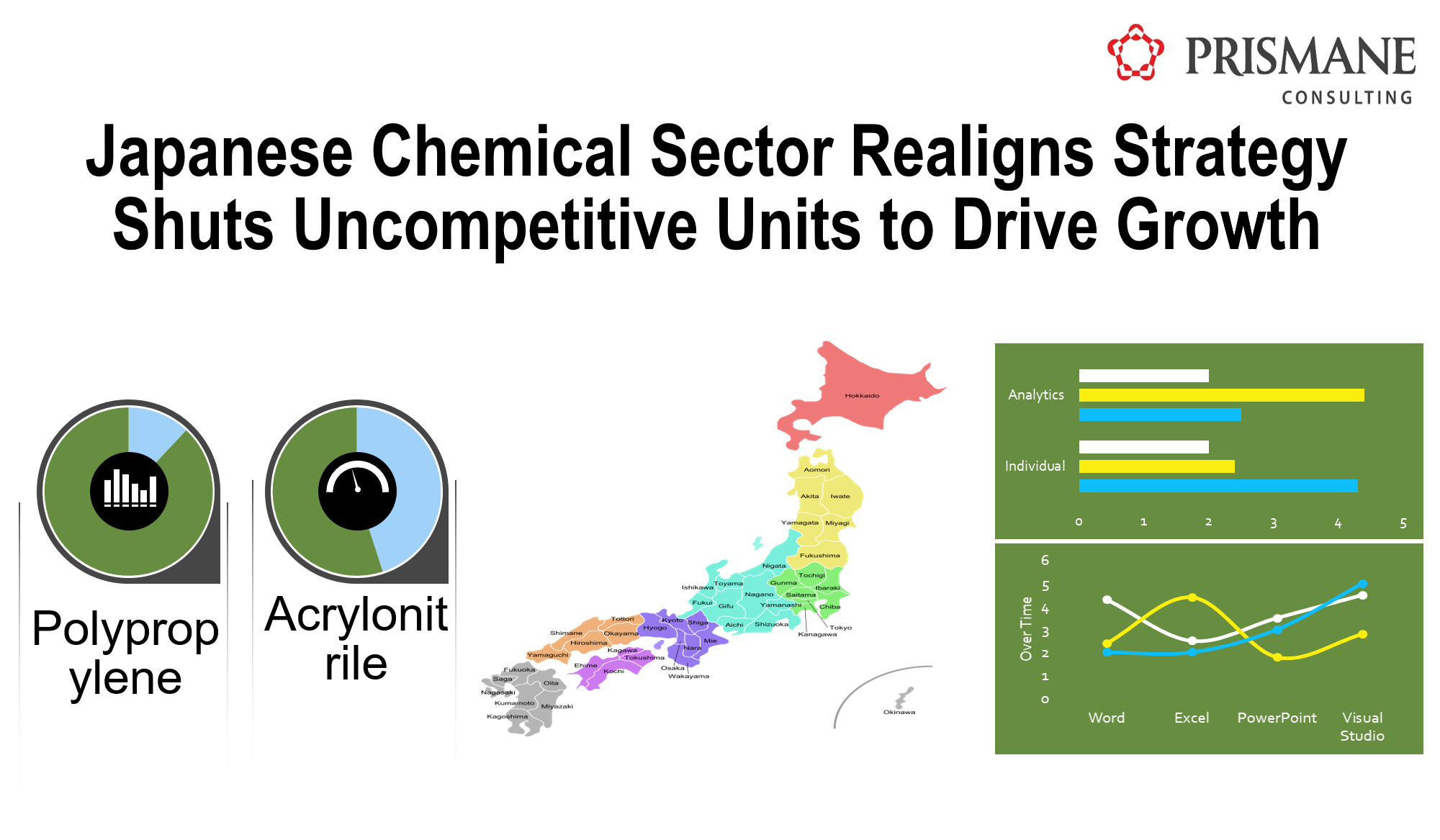Japanese Chemical Industry Shuts Down Uncompetitive Units to Drive Growth
The Japanese chemical industry is in the midst of a major restructuring today. After a prolonged plateaued growth phase, margins have teetered into the negative territory, leaving producers vying for market competitiveness. Consequently, cutbacks, layoffs, and plant closures have followed, as the sector grapples with profitability. Since 2021, when things really began going downhill, the industry has also seen various collaborations, although measures from the same have resulted in consolidations & plant shutdowns. While this continues, C-level executives of major players are now calling for a “major transformation”, maintaining that momentum for the same today is stronger than ever.
Notable trends visible in the country today include the giants shedding their low-margin businesses and streamlining their operations. Prime Polymer, a joint venture between Mitsui Chemicals & Idemitsu Kosan announced in March 2023 the closure of its polypropylene production line at Chiba, with a capacity of 110 kilotons/annum. Sumitomo Chemical has also announced that it will restructure 30 business units, including its polyolefin operations in Japan.
Included among the closures are the companies’ several key producing assets that are decades old and operate on older, costlier technologies that were pressurising margins. In February 2024, Mitsubishi Chemical Group (MCG) disclosed plans to discontinue production of acrylonitrile, its derivatives (acetonitrile, ammonium sulphate, and chelating agents) and part methyl methacrylate (MMA) monomer at its Hiroshima facility. Scheduled in July 2024, the output cease will effectively mark the company’s exit from its chelating agent & acetonitrile businesses.
Per Prismane Consulting’s database, MCG operates two MMA facilities at Hiroshima: a 107 kilotons/year plant based on the acetone cyanohydrin (ACH) process and an isobutylene C4-based 110 kilotons/year plant. Being old and comparatively less cost-efficient, the ACH-based plant will be scrapped. An ester of methacrylic acid, MMA is widely employed in polymethyl methacrylate (PMMA) production, used further to make sheets and molding & extrusion products. It is also used in acrylic surface coatings and polymer modifiers. Asahi Kasei, Mitsui, Mitsubishi Gas, and Sumitomo are other MMA producers operating in the country. Traditionally a net exporter of MMA, it remains to be seen how the plant closure affects Japan’s trade dynamics.
Overseas, MCG has closed its MMA production facilities in Texas, USA, and Billingham, UK, to boost competitiveness and optimize supply chains. The company will also close its acrylonitrile facility at Hiroshima, with an annual production capacity of 90 kilotons. Its Okayama-based plant with the same capacity, meanwhile, will continue regular production. Contracting domestic consumption and Chinese oversupply have been blamed for the shutdown. China, traditionally a net importer of acrylonitrile, switched to a net exporter in 2021, and its export volumes since then have consistently risen year-on-year, thanks to the plethora of new supply additions. Despite an apparent oversupply, more plants are slated to add over the forecast, with the annual MMA capacity of the country set to cross 7 million tons just in the next 3 years.
Among MCG’s plans to halt production also include its bisphenol-A (BPA) facility at Kurosaki, Fukuoka, with an annual production capacity of 120 kilotons. Its 100 kilotons/year Ibaraki plant, meanwhile, will continue regular production. Business environment for BPA has deteriorated in recent years, with market oversupply even forcing producers like Idemitsu Kosan to announce its complete exit from the BPA business by shutting down its sole 81 kilotons/year plant at Chiba by October 2024. Idemitsu’s shutdown prompted Mitsui Chemicals to consider downsizing its phenol & acetone plants, since both materials are key feedstocks for BPA production. Mitsui also disclosed in November 2023 its plans to close its 145 kilotons/year polyethylene terephthalate (PET) plant in Yamaguchi by October 2024.
Overall, several restructuring efforts continue in Japan’s chemical sector. Profit declines in the past 2 years, on the back of Chinese oversupply and muted domestic demand continue to weigh on the industry. Nevertheless, market participants remain optimistic, with the shedding of uncompetitive assets and low-margin segments to improve its overall health.

